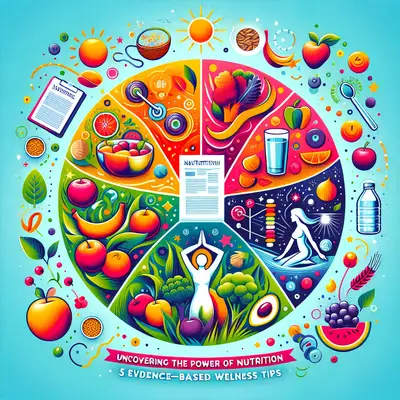Whole Foods are Key
A variety of whole, unprocessed foods should be the cornerstone of your diet. A study published in the Journal of Nutrition suggests that whole foods, rich in fiber, vitamins, and minerals, can reduce the risk of chronic diseases like obesity, heart disease, and cancer. So, fill up your plate with fruits, vegetables, whole grains, and lean proteins for a nutrient-dense diet.
Don't Fear Fats
Fats often get a bad rap but they're essential for our health. The Harvard School of Public Health underscores the importance of healthy fats in our diet. Monounsaturated and polyunsaturated fats, found in foods like avocados, nuts, seeds, and fish, can lower bad cholesterol levels and provide essential fatty acids.
Hydrate, Hydrate, Hydrate
Staying well-hydrated is a non-negotiable aspect of optimal health. A comprehensive review in the European Journal of Clinical Nutrition notes that even mild dehydration can impact mood, energy levels, and mental function. Aim for at least eight glasses of water per day, more if you're active or live in a hot climate.
Mindful Eating Matters
Mindful eating - the practice of paying attention to your food and eating habits - can be a powerful tool for weight management. A report in the Journal of the Academy of Nutrition and Dietetics showed that mindful eating can help control overeating and emotional eating. Try to eat without distractions and listen to your body's hunger and fullness cues.
Supplements Can Help
While a balanced diet should provide all the nutrients we need, sometimes we may require supplements. People with dietary restrictions, certain health conditions, or those over the age of 50 may benefit from specific supplementations. Always consult with a healthcare provider before starting any supplement regime.
Conclusion
Nutrition is a complex field, but focusing on these five evidence-based strategies can be a good starting point for anyone looking to enhance their health. Remember, it's about progress, not perfection. Small, consistent changes can lead to big improvements over time. Stay informed, listen to your body, and consult with professionals to navigate your nutritional journey.



